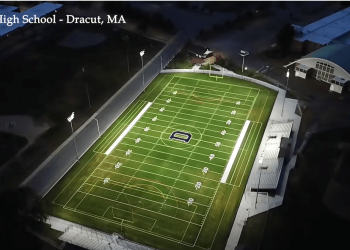Worldwide countries are trying to convert their key cities into a smarter version. The intelligent cities are more commonly urban areas that can collect electronic data from residents, their devices, applications, and assets to manage the availability of resources more efficiently. To transform places into smart cities, a massive range of information and communications technology applications are being applied to develop, reduce costs and resource use, as well as enhance the communication between government and residents. Ideally, these applications can take knowledge and innovations to another level, boost working environments, and link up technology and society. It also seeks to embed a digital connection between government services and citizens to wallop local communities positively.
In one such move, Singapore has earmarked S$14 Mn (US$10.19 Mn) to transform itself into a smarter city by driving the development of intelligent urban estates that can function and consume energy more expeditiously. The project is all set to be spread across a period of three years, and the investment would be directed towards aiding technology organizations build and pilot “innovative urban solutions” for smart estates. To initiate a beginning, the Singapore officials have forged a partnership with organizations that can offer estates which can be transformed and the government is all set to rope in more technology partners over time, adding that it hoped to facilitate the development of technology to support “hyper-connected smart estates of tomorrow.”
The advantage of information and communication technology being incorporated in the smart cities can be utilized for a wide variety of services which include hospitals, power plants, traffic and transportation, water supply, waste management, and law enforcement. Smart connections aim to fulfill market demand and more expeditiously use the city’s public capital. Cities can encourage the adaption of intelligent electricity metering, using sensors to observe leakage and pollution in water infrastructure and resources, incorporating sensors in city waste containers to ascertain when they are full, or apply dynamic traffic light sequences, among thousands of other possibilities. As the certainty towards increasing and aging urban populations, altering climates and economies, and a significant shift towards online consumption become apparent, the proliferation of using various aspects of smart cities becomes importance.
It is pertinent to mention that the Singapore government last year announced plans to set aside S$2.4 Bn (US$1.75 Bn) to start the country’s smart nation efforts and digital transformation. The capital is supposed to go towards information communication technology tenders across various technology areas, including Internet of Things (IoT) sensors and data analytics, as well as enhancements to the critical communications infrastructures. A local association was also constituted last year to create and test smart mobility technologies, including traffic light systems, automated video analysis, and environmental sensors. The Singapore university’s campus would serve as a test zone for technologies developed by the association of which numerous industry partners Mitsui & Co.’s subsidiary Car Club, Red Hat, Panasonic, ST Engineering, and Shenzhen Genvict Technology are part-that would monitor wireless communication standard for vehicular use, vehicle-to-everything.




